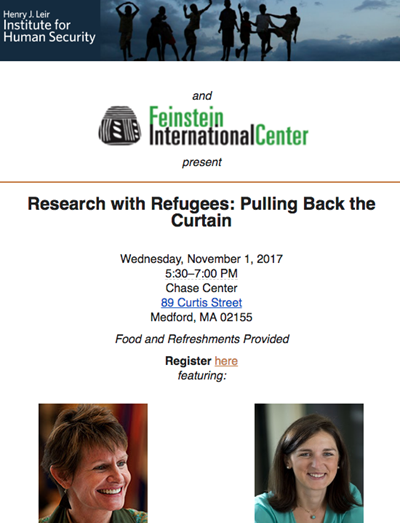
Research with Refugees: Pulling Back the Curtain
In the fall of 2017, the Henry J. Leir Institute for Human Security launched a series of outputs from research on the Financial Journey of Refugees.
On November 1, 2017, join Kim Wilson and Roxanne Krystalli for a discussion on the practicalities of refugee research.
How did they and their research team navigate dilemmas of power during fieldwork? How did they think about the ethical implications of working with refugee narratives? What are some of the dilemmas that they faced during the conduct of their fieldwork in Greece, Jordan, and Turkey? How can students, researchers, and practitioners think about the ethics and methods of refugee research moving forward?
The evening will be chaired by Professor Eileen Babbitt, Director of Henry J. Leir Institute for Human Security, and the Q & A will be moderated by Gregory Gottlieb, Director of the Feinstein International Center and Irwin H. Rosenberg Professor in Nutrition and Human Security, Friedman School of Nutrition.
Kim Wilson is a Lecturer in International Business and Human Security at The Fletcher School. Roxanne Krystalli is a Program Manager at the Feinstein International Center and a PhD Candidate at The Fletcher School.
Wednesday, November 1, 2017
5:30 p.m.
Chase Center
